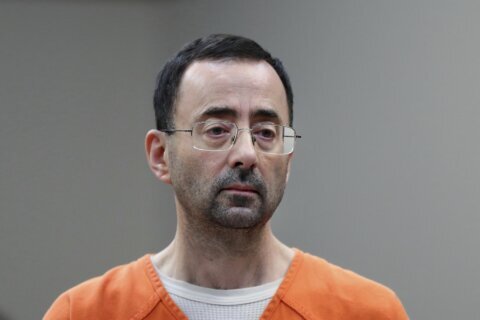Aging makes independence more challenging for many adults, particularly those with dementia. Long-term care facilities, such as assisted living and memory care, however, can help fill the gaps for adults who may be experiencing cognitive impairment or just need assistance with daily tasks.
Here, we’ll unpack everything you need to know about the differences between assisted living and memory care communities and how to find the right one for your situation.
What’s the Difference Between a Memory Care Facility and Assisted Living With Memory Care?
Assisted living communities typically provide support for adults struggling with activities of daily living, such as eating, toileting and grooming, while allowing residents some degree of independence and privacy. Residents in these facilities may be eager to shed the responsibilities of home ownership or be seeking companionship while getting assistance with medication management and housekeeping.
Memory care, on the other hand, caters specifically to adults with cognitive deficits. Memory care often provides:
— 24-hour supervised care
— Specialized protocols and practices to keep residents safe and prevent wandering and elopement
— Programming and activities designed specifically for people with Alzheimer’s disease and other forms of dementia
— Specially trained dementia caregivers who can offer more intensive support
In addition, memory care can involve more focused assistance with memory, judgment, process and communication.
“It may be managing an individual’s medication, reminding them of mealtimes or to go to the bathroom,” explains Jackie Barbarito Scholar, administrator of assisted living and memory support at Goodwin House Alexandria in Alexandria, Virginia.
Memory care can appear as a stand-alone facility or as an on-site unit in a senior living community, usually assisted living. For assisted living with memory care, residents receive the benefits of assisted living — socialization, activities, help with daily activities — while also receiving more specialized care and enhanced safety and security.
[SEE: Early Signs of Dementia.]
Tiers of Dementia Care
Residents in long-term care facilities often need additional care as they age. This is why some communities are structured with levels of care that a resident can progress through as needed.
Generally speaking, there are three levels of care in assisted living communities that offer memory care services:
— Lower-tier assisted living care. In assisted living, lower levels of care are designed for residents who need only light assistance, such as help with buttons or laces or managing medications. These residents may have little to no memory loss.
— High-level assisted living care. Higher levels of care in assisted living facilities are designed for residents who need more intensive support, such as help with bathing or grooming or assistance with mobility. Residents typically have more complex health needs and often have some memory loss, but it’s not advanced enough to require focused memory care.
— Memory care in assisted living. Residents with progressing dementia need more focused support, and memory care — with its specialized activities and training for staff — often qualifies as its own level of care.
“These different levels of care ensure that residents can have a great experience and remain as independent as possible throughout their dementia journey,” says Taneisha Hampton, a gerontologist and administrator of assisted living and memory support at Goodwin House Bailey’s Crossroads in Falls Church, Virginia.
Some facilities that focus solely on supporting patients with dementia have other levels of care designed for different stages of the disease. Similar to programming in assisted living communities, these tiers of care typically start with a lower level and progress to more intensive care and support as the person’s needs escalate.
[READ What Are the Levels of Senior Living?]
Benefits of a Dedicated Memory Care Program
Placing a loved one in a dedicated memory care program — whether it’s in a stand-alone memory care facility or a unit within an assisted living community — can have many benefits and lead to a longer, healthier life. Below, we outline some of the key benefits that memory care programs may offer.
Specially trained staff
Memory care employs staff members with specialized training to care for people with dementia. Assisted living communities without memory care units may not.
Dementia training standards vary by state, but each mandates a minimum standard of training with these goals:
— Educating caregivers about the changing brain of people who have dementia
— Offering caregivers tools and strategies for redirecting those with dementia and reducing agitation
The best dementia care programs train everyone who works at the facility, including staff in dining rooms, housekeeping and maintenance, not just the clinicians or caregivers who are directly responsible for care.
If you’re considering moving a loved one into memory care, make sure to ask whether and how staff are trained to care for people with dementia. For memory care within an assisted living facility, you can also check with your state’s agency overseeing these communities for training requirements and adherence.
Structured programming
People with dementia benefit greatly from having an established routine, as this helps them know what to expect and reduces stress and anxiety. A regular routine can also enable some people with dementia to be more independent. Sticking with a set protocol can be beneficial for caregivers too, as the person they’re looking after may be easier to work with when they’re calm.
Programming should also be tailored to the individual. Because people with dementia may have differing presentations and symptoms of the disease, it’s critical for caregivers to design programming to support each individual’s needs and preferences. For example, some people with dementia may be more mobile than others who have a more advanced stage of the disease. For those who are less mobile, certain types of physical activity may be more difficult and therefore less useful as a form of therapy.
Specialized activities
Specialized activities aimed at preserving cognitive function and stimulating the brain are critical for ensuring all residents of dementia care facilities remain engaged and safe.
In an assisted living facility, activities are designed to reduce isolation and loneliness and keep residents active. Residents in these communities might:
— Attend lectures or classes
— Go on outings to museums, lunches, shopping sites or restaurants
— Take exercises classes, such as yoga
Memory care, however, tailors activities to people with dementia, rather than simply aiming to engage a general senior audience.
Activities in memory care might include:
— Socializing one-on-one through conversations or reading a book together
— Enjoying simple arts and crafts
— Listening to and talking about music or singing and playing music together
— Working on puzzles
— Looking through photo books together and recalling fond memories
— Exercising, such as walking in nature or simply getting outside for some fresh air
— Visiting with animals, such as therapy dogs brought in to stimulate the sense of touch and a feeling of unconditional love
Engaging in more than one activity at a time can also be beneficial. Putting together a puzzle or folding napkins while listening to music, for instance, can help some people with dementia feel more grounded and focused.
“Brain stimulation increases quality of life,” says Dr. Douglas Scharre, a neurologist and director of the division of cognitive neurology at the Ohio State University Wexner Medical Center in Columbus.
[Read: How to Know Your Loved One Is Getting the Senior Care They’re Paying For]
Paying for Memory Care
Cost is always a factor in considering assisted living vs. memory care. According to Genworth Financial’s 2023 Cost of Care Survey, the national median cost for an assisted living facility is $5,350 per month.
Specialized memory care may be more expensive than traditional assisted living communities because of the additional staff training requirements and advanced care protocols in place. Dementia Care Central estimates that memory costs about $1,200 more per month, so you should expect to pay around $6,550. That price can vary, of course, depending on your geographic location and the tier of care needed, among other factors.
Figures from the National Center for Investment, a nonprofit that tracks the senior care industry, paint a pricier picture. In December 2023, the NCI reported the average initial rate for an assisted living unit was $6,017 monthly or $72,204 annually. By comparison, the average initial rate for a memory care unit was $7,899, which totals $94,788 annually. As needs rise, so too do costs.
When it comes to paying for assisted living or memory care facilities, your options may be limited, with most seniors relying on personal assets to cover the bulk of the cost.
“Unfortunately, Medicare will not typically cover assisted living or memory care facilities,” notes Gregg Ratkovic, chief business officer with eHealth Inc., a health insurance broker and online resource provider headquartered in Santa Clara, California. “Medicare will typically pay for things like cognitive assessments, home safety evaluations and hospital stays. Prescription drugs can be covered under Medicare Part D plans or Medicare Advantage plans with drug coverage.”
When a senior has spent down their reserves and can no longer pay out of pocket or via private or long-term care insurance options, Medicaid may kick in. The state-administered assistance program for low-income individuals provides some coverage for long-term or in-home care.
How to Find the Right Facility for You
Whether you’ve opted for an assisted living facility that has a memory care program or a dedicated memory care center, finding the right facility for your loved one’s specific needs and preferences is critical.
That means doing some homework. Tina R. Sadarangani, a board-certified primary care nurse practitioner and assistant professor at NYU who specializes in the care of older adults, offers several pointers for finding the best community for your needs:
— Take a tour and pay attention to participants’ engagement and the feeling you get upon entering.
— Look carefully at the quality and upkeep of the facility.
— Assess the level and quality of patient-staff interaction.
— Consider pricing and staff-to-resident ratios.
— Determine whether the location is convenient for your family.
— Ask about activity offerings.
“In the end, you want a safe and secure environment that promotes safety, independence and productive, meaningful engagement,” Sadarangani says.
But do be wary when touring potential facilities, adds Dr. Elizabeth Landsverk, a geriatrician based in the San Francisco area offering an online telemedicine, education and support resource for eldercare professionals, caregivers and families.
“Even though a facility may look fancy, it may lack programs to keep the elder engaged and a qualified staff to run things,” she says.
For more guidance, read our handy checklist to help you find the best facility that offers dementia care services near you.
Explore Top-Rated Senior Care Facilities with U.S. News
With U.S. News’ Best Senior Living 2024 ranking, you can start your search for top-rated memory care and/or assisted living facilities in your area today to get ahead of your loved one’s memory care needs before they become urgent. This ranking lists more than 3,500 senior care facilities across the United States and is based on more than 400,000 survey responses from seniors who live in these communities and their families.
More from U.S. News
New Treatments for Alzheimer’s Disease
Dementia Care: Tips for Home Caregivers
What Are the Stages of Dementia?
Everything You Need to Know About Dementia Care in Assisted Living Communities originally appeared on usnews.com
Update 08/30/24: This story was previously published at an earlier date and has been updated with new information.







